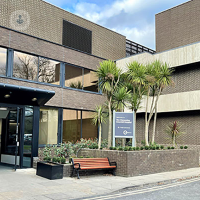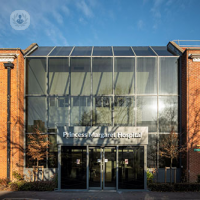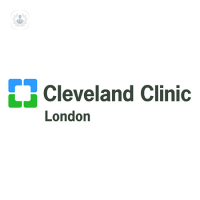Varicocele
What is a varicocele?
A varicocele is formed by a varicose vein (an unusually swollen vein) or a group of varicose veins, located in the scrotum or in the spermatic cord. Varicoceles usually develop during puberty, growing larger and more noticeable with time. They occur most often on the left side of the scrotum, and although not usually harmful, in some people it can cause pain in the testicles, cause one testicle to grow slower than the other, and/or affect the patient’s fertility. There is also a female varicocele, which involves an enlargement of the ovarian veins and causes pelvic varicose veins.

What is the prognosis of the disease?
Varicocele is not a serious disease, but it is a common cause of low sperm production, and therefore can cause infertility. In some cases, the varicocele can cause the testicles to shrink (atrophy) and not develop normally.
What are the symptoms of a varicocele?
Usually a varicocele is asymptomatic, but in some cases it can cause pain that varies from mild discomfort to acute pain. This pain may increase throughout the day. It may also be exacerbated by standing up or upon physical exertion.
Over the years, the varicocele grows and becomes more evident. The testicle may appear swollen.
Varicoceles are also known to cause infertility in some patients, making it more difficult to father a child.
How is a varicocele detected?
The diagnosis of a varicocele is made by an urologist or andrologist, who carries out a physical examination in search of a firm lump in the testicle, a characteristic of a varicocele. If the examination is inconclusive, a scrotal ultrasound may be required.
What are the causes of a varicocele?
A varicocele is the enlargement of a vein within the spermatic cord (which contains the vas deferens and blood vessels that provide the testicles with their blood supply). There are several theories as to why this happens, but the cause is uncertain.
How is a varicocele treated?
In many cases, a varicocele does not need treatment as long as it does not cause symptoms, reduction in testis size, hormonal dysfunction or affect fertility (sperm count and quality). If a testicular varicocele produces symptoms or dysfunction such as infertility, there are surgical options. In the gold standard treatment, the varicocele can be removed via a varicocelectomy using microsurgery, which involves removing the affected veins and redirecting blood flow through healthy veins. It is done as a day case under general anaesthesia, being able to return to most regular daily activities a few days later. The pain should subside within a few days or weeks.
An alternative to surgery with a lower success rate is percutaneous embolisation of the varicocele. This procedure is performed by a radiologist in association with a urologist where a needle is placed through the skin under local anaesthetic. Using this technique, coils are used to block the main testicular vein.
Which specialist treats a varicocele?
Urologists specialise in treating the urinary system and male reproductive system, while andrologists are further specialised in the diagnosis and treatment of the pathologies of the male sex organs, including the testicles. In cases of varicocele in puberty, it is possible that a paediatrician notices the presence of a varicocele, since in many cases it develops at this point in the patient’s life.
How common are varicoceles?
Varicoceles are quite a common occurrence, particularly in men. In fact, it is estimated that roughly between 10 to 15 per cent of all men are diagnosed with a varicocele at some stage in their lives.
Are varicoceles common in infertile men?
Yes, varicoceles are very common in men who are infertile. It is estimated that up to 40 per cent of infertile men suffer from the disease.
Is varicocele a life-threatening disease?
Fortunately, no, a patient's life is not put at risk if diagnosed with varicocele.
How does varicocele affect fertility?
Unfortunately, many men can become infertile if they have been diagnosed with varicocele. When a varicocele becomes enlarged over time, an intense amount of pressure is placed on the man's spermatic cord, which ultimately leads to a low sperm count.
What should I avoid doing if I have varicocele?
Patients who have been diagnosed with varicocele are urged to avoid the following:
- tight clothing
- sexual activity (unless your urologist has advised otherwise)
Can varicoceles go away on their own without treatment?
As previously mentioned, varicocele does not always need to be treated. If severe, or if causing significant pain and disruption in one's life, it should be treated. Varicoceles do not disappear without adequate treatment.













